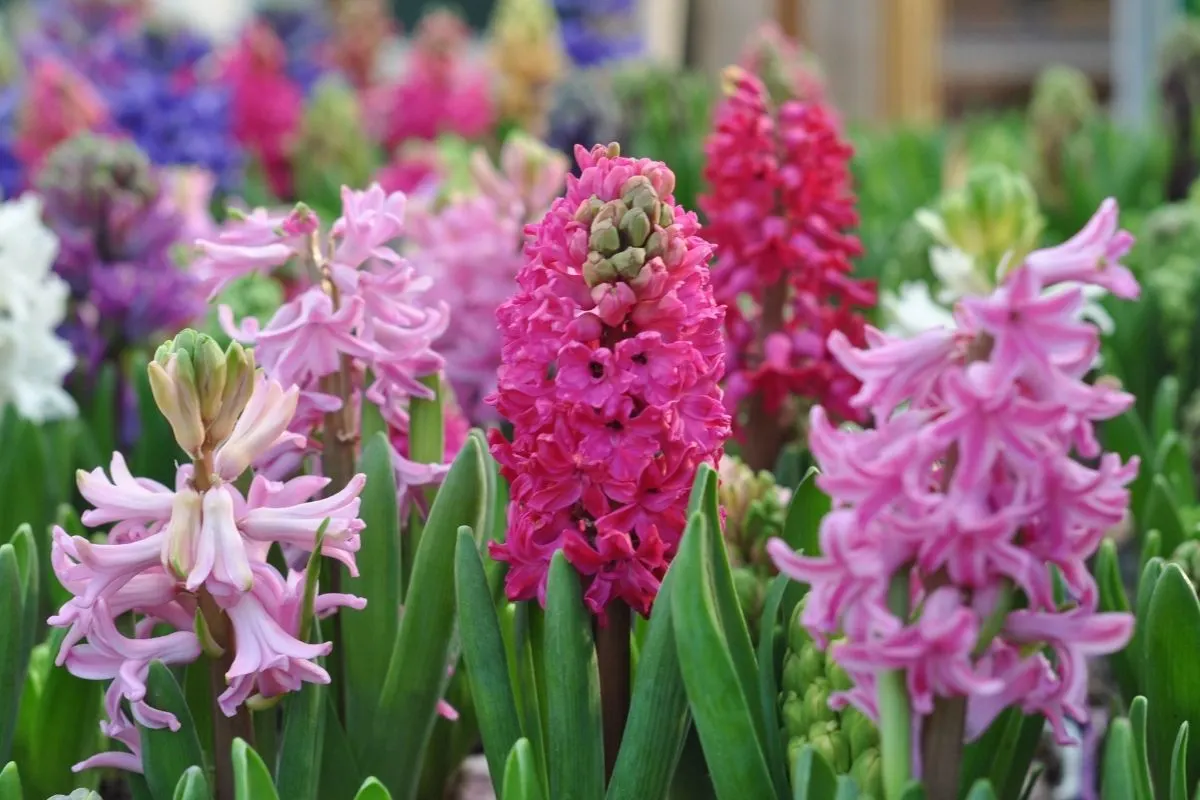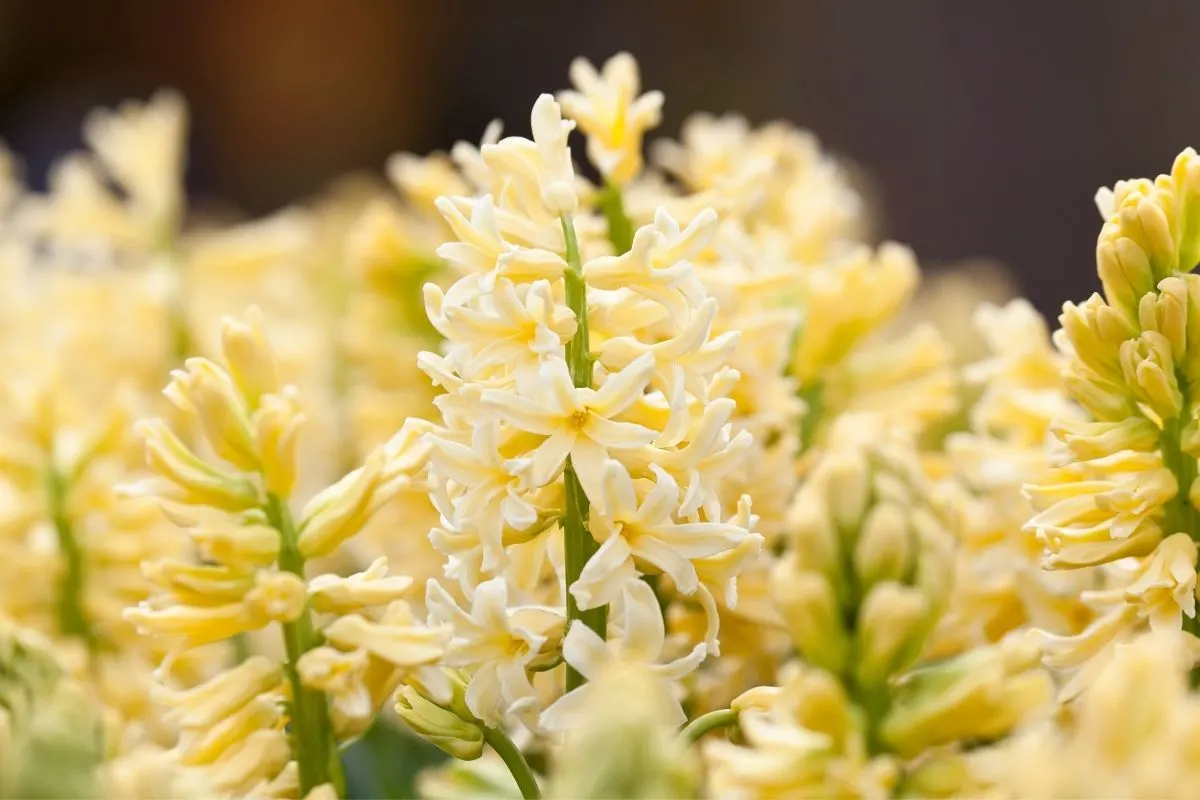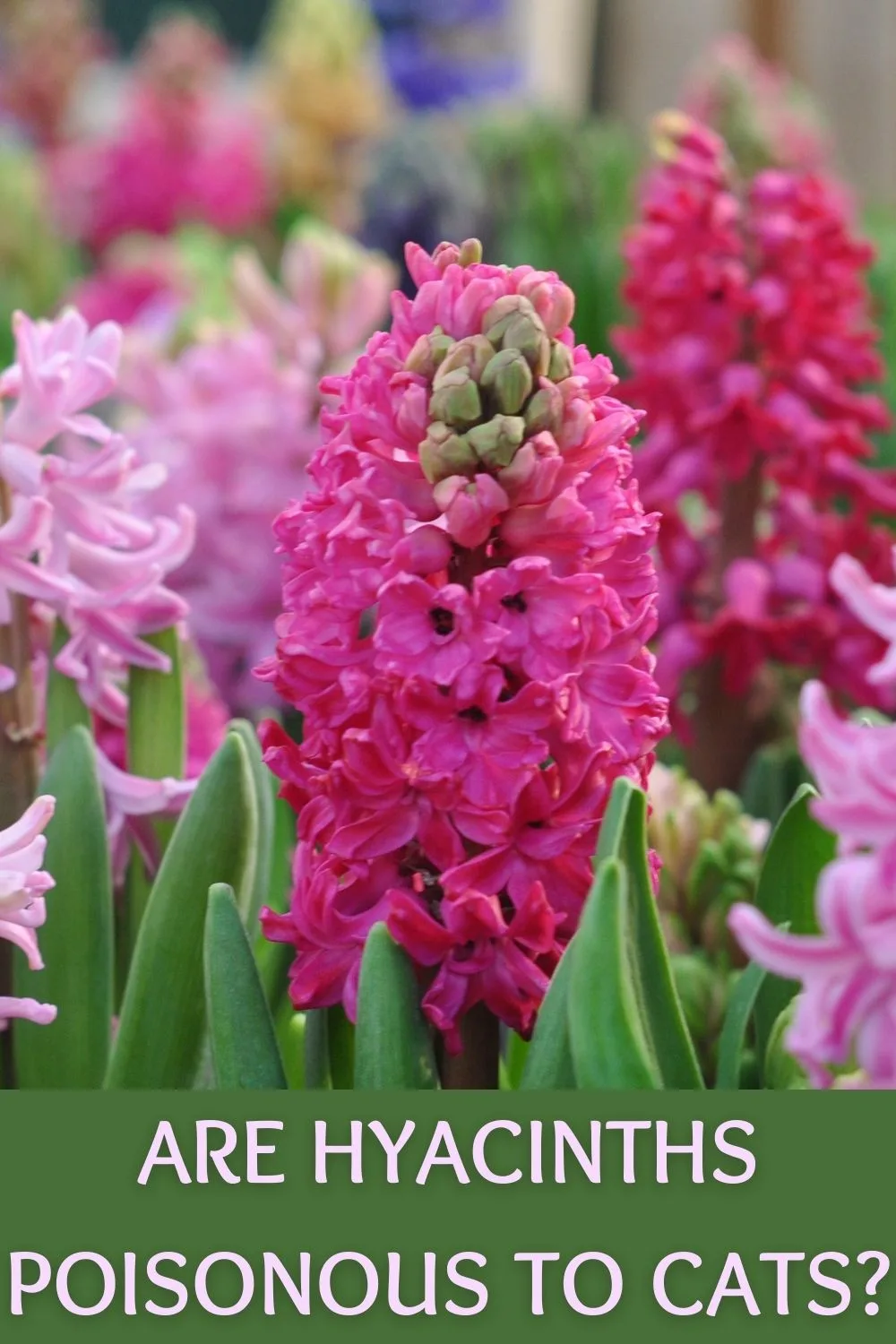Hyacinths are beautiful, fragrant spring flowers. However, if you have cats, you may be asking “Are hyacinths poisonous to cats?” There are many plants that are toxic to pets like cats or dogs, so it’s important to do your research.
Hyacinths are, unfortunately, poisonous to cats. The bulbs of the hyacinth contain allantoin, an irritant that can cause vomiting and diarrhea in cats. The flowers and leaves are also toxic and can cause oral irritation and gastrointestinal problems if ingested.

If you have cats, then hyacinth flowers are not a good choice to keep around where your cat has access. Let’s explore this in more detail.
What Are Hyacinths?

Hyacinths are a type of bulbous flower that typically blooms in shades of purple, pink, blue, white, or yellow. Hyacinths are native to the eastern Mediterranean region and were once considered a symbol of wealth and prosperity. Today, they are widely cultivated as ornamental plants and are a popular choice for spring gardens.
Hyacinths are relatively easy to care for and will often bloom for several years with minimal upkeep. With their vibrant colors and sweet fragrance, hyacinths are sure to add a touch of beauty to any garden.
Hyacinths are relatively easy to grow and make a lovely addition to any garden. They prefer full sun and well-drained soil and should be planted in the fall. They will bloom in early spring, and the flowers will last for several weeks.
After the blooming period is over, the plants should be allowed to die back naturally. Once the leaves have yellowed and died back, the bulbs can be dug up and stored in a cool, dry place until next year.
What is Hyacinth Poisoning?
This plant contains a toxic compound called lycorine. Hyacinth poisoning occurs when someone ingested this compound, and it results in symptoms like vomiting, diarrhea, and abdominal pain. In severe cases, it can lead to seizures and even death.
For this reason, it is important to keep Hyacinths out of reach of small children and pets who might be tempted to nibble on them. If you suspect that someone has been poisoned by hyacinths, contact a medical professional immediately for treatment. It’s important to spot the symptoms of poisoning early so that you can get your cat treatment.
Symptoms of Hyacinth Poisoning in Cats
Hyacinths are a beautiful springtime flower, but they can be dangerous for curious cats. The bulbs of hyacinths contain a toxic substance that can cause vomiting, diarrhea, and even seizures in cats. If you suspect that your cat has eaten a hyacinth bulb, it is important to seek veterinary care immediately.
Symptoms of hyacinth poisoning in cats can include:
- vomiting
- diarrhea
- seizures
- tremors
- drooling
- difficulty breathing
If you notice any of these symptoms in your cat, contact your veterinarian right away. With prompt treatment, most cats recover fully from Hyacinth Poisoning.
Causes of Hyacinth Poisoning in Cats
The most common cause of hyacinth poisoning in cats is from ingesting the plant. The toxic principle in hyacinths is unknown, but it is thought to be an alkaloid. Symptoms of hyacinth poisoning include vomiting, diarrhea, drooling, abdominal pain, and convulsions.
The bulbs of hyacinths contain a variety of toxins that can cause gastrointestinal upset, drooling, vomiting, and diarrhea. In severe cases, hyacinth poisoning can lead to respiratory distress and even death.
If you suspect that your cat has eaten a hyacinth bulb, it is important to seek veterinary care immediately. With prompt treatment, most cats recover from Hyacinth poisoning without serious complications.
Diagnosis of hyacinth poisoning in cats
If you suspect that your cat has eaten a hyacinth, call your veterinarian immediately. Getting treatment for eating these toxic plants is the first and most important step. Cats are very good at acting fine and hiding their pain and discomfort. Even if you think your cat is okay, it’s important to get a formal diagnosis from the vet.
Symptoms of hyacinth poisoning can include excessive drooling, increased heart rate, skin irritation, vomiting, and diarrhea. In severe cases, hyacinth poisoning can lead to dehydration and liver damage, as well as kidney failure. Some cats have cardiac arrhythmias after toxic plant poisoning. With prompt treatment, however, most cats make a full recovery.
Treatment of hyacinth poisoning in cats
If your cat has ingested a hyacinth, it is important to seek professional medical treatment immediately. The veterinarian will likely give your cat supportive care, such as IV fluids, and may also recommend giving them activated charcoal to help absorb the toxin.
Recovery of hyacinth poisoning in cats
With prompt treatment, most cats recover quickly from hyacinth poisoning and make a full recovery. Because every cat and every case is different, your vet will be able to tell you exactly what to do to ensure your feline friend has the best chance at a full recovery. Seek medical treatment right away, even if your cat seems fine to you, and then follow your vet’s instructions closely.
Are Hyacinths Poisonous to Cats? – Conclusion
As you can see, hyacinths are not a plant you want your kitty friends to come into contact with. These toxic plants are beautiful to look at, but they don’t play well with your cats. Many indoor plants, as well as outdoor plants, are toxic to cats.
If your cat is an indoor-only kitty, the issue is simple enough to prevent – just don’t bring any toxic plants inside the home. However, if you also let your cat outdoors, then you need to extend that prevention to the outside area of the home and garden, too.

